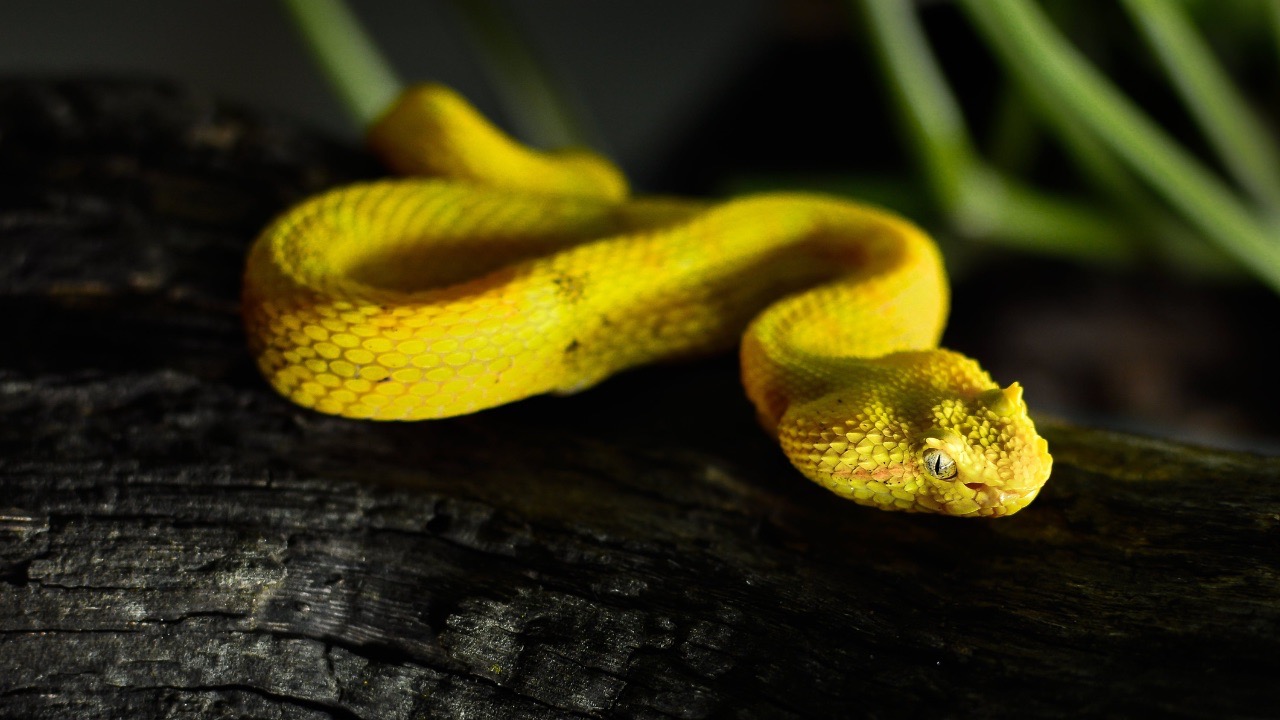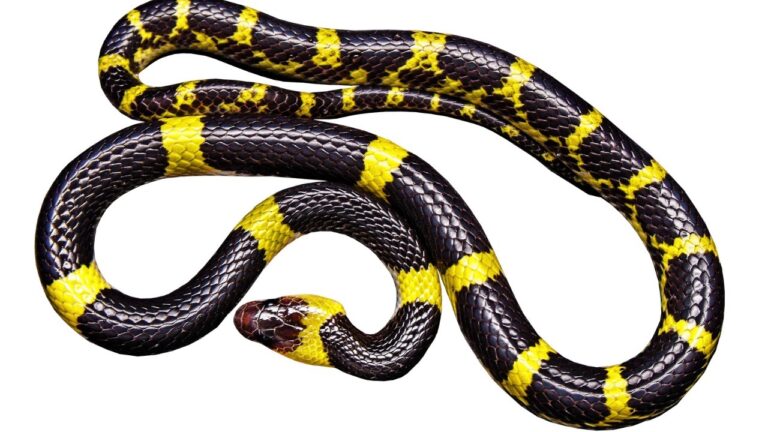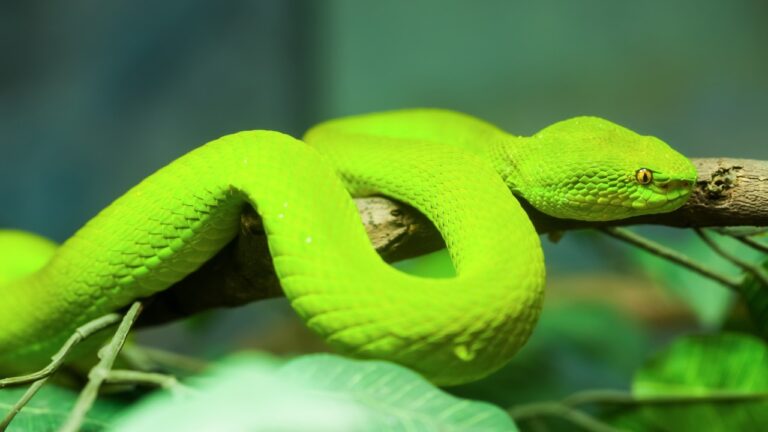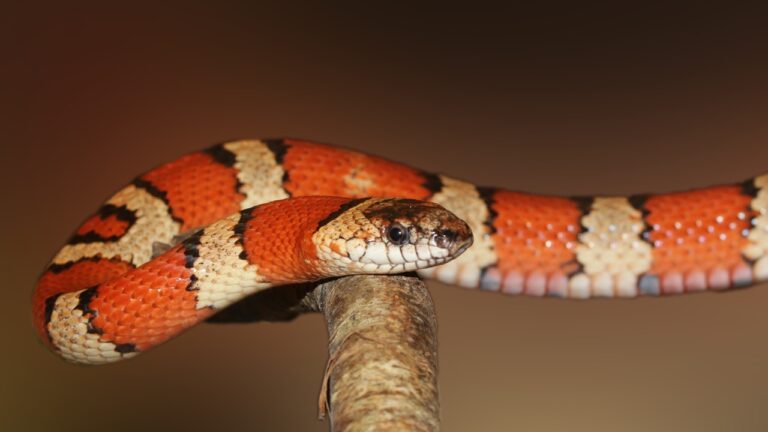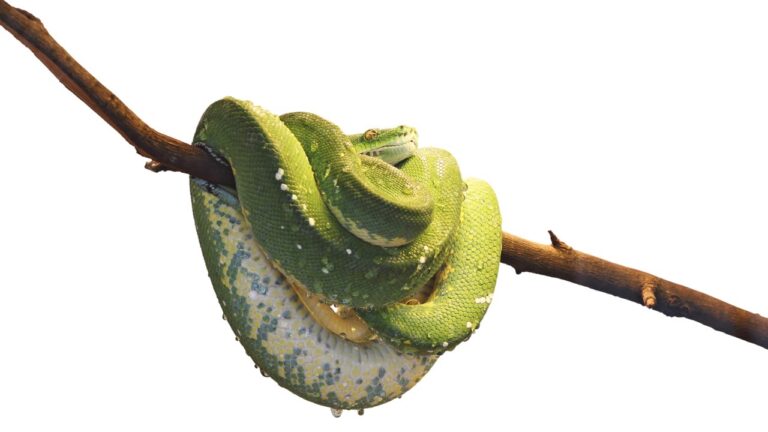Unlocking Snake Vitamins: Essential Nutrition for Healthy Serpents
Introduction: Overview of the importance of nutrition for snakes
When it comes to the health and well-being of our scaly companions, nutrition plays a vital role. Just like any other living creature, snakes require a balanced and nutrient-rich diet to thrive. A proper understanding of snake nutrition is crucial for snake owners and enthusiasts alike, as it directly impacts the overall health, longevity, and vitality of these fascinating reptiles.
Snake nutrition encompasses the various dietary components that are essential for their growth, development, and maintenance. While it may be tempting to assume that these slithering creatures can survive on just about anything, the reality is that they have specific nutritional needs that must be met for them to truly thrive.
In the wild, snakes have evolved to consume a diverse range of prey, including rodents, birds, amphibians, and other reptiles. Their bodies are finely tuned to extract the necessary nutrients from their meals, enabling them to flourish in even the harshest of environments.
However, in captivity, it is our responsibility as caretakers to ensure that our serpentine companions receive the optimal nutrition they require. This involves understanding the basic dietary needs of snakes, identifying the essential nutrients they need to thrive, and recognizing the signs of vitamin deficiencies that can arise if their nutritional needs are not met.
In this comprehensive guide, we will delve into the fascinating world of snake nutrition, exploring the role of vitamins in snake health, the importance of proper vitamin supplementation, and the essential snake vitamins that are crucial for their well-being. We will also discuss how to provide snakes with the vitamins they need, signs of vitamin deficiencies to watch out for, and tips for maintaining a healthy snake nutrition regimen.
So, whether you are a seasoned snake owner or just starting on your reptile journey, join us as we unlock the secrets of snake nutrition and discover how to keep these remarkable creatures in the best of health. Together, let’s ensure that our slithering friends get the nutrition they deserve!
Understanding Snake Nutrition
When it comes to the well-being of our slithering companions, nutrition plays a pivotal role. Snakes, like any other living creature, require a balanced diet to thrive and maintain good health. Understanding the basic dietary needs and essential nutrients for snakes is key to ensuring their overall well-being.
Basic Dietary Needs of Snakes
Snakes are carnivorous creatures, which means that their diet primarily consists of meat. However, the specific dietary requirements can vary depending on the species. Some snakes prefer to feast on rodents, while others may have a taste for birds or even amphibians. It is important for snake owners to research the specific dietary needs of their snake species to provide them with the appropriate sustenance.
Essential Nutrients for Snakes
Snakes require a variety of essential nutrients to support their growth and overall health. These nutrients include proteins, fats, vitamins, minerals, and water. Proteins are crucial for muscle development and repair, while fats provide energy and help maintain bodily functions. Vitamins and minerals are necessary for various physiological processes, such as maintaining a healthy immune system, promoting proper bone development, and ensuring optimal organ function. Adequate water intake is also essential to prevent dehydration and facilitate digestion.
Common Vitamin Deficiencies in Snakes
Just like humans, snakes can also experience vitamin deficiencies if their diet lacks certain essential vitamins. Vitamin deficiencies can have detrimental effects on a snake’s health, leading to various health complications. Some common vitamin deficiencies in snakes include vitamin A, vitamin B complex, vitamin C, vitamin D, and vitamin E deficiencies. These deficiencies can manifest in physical symptoms, such as skin and eye problems, as well as behavioral changes, including lethargy or loss of appetite.
Understanding the basic dietary needs and essential nutrients for snakes is crucial for their well-being. Providing them with a balanced diet that meets their nutritional requirements is essential to prevent vitamin deficiencies and ensure their overall health. In the next section, we will explore the importance of snake vitamins and the role they play in maintaining optimal snake health.
To learn more about snake diet and feeding, check out our comprehensive snake feeding guide.
Importance of Snake Vitamins
When it comes to the health and well-being of our slithering friends, snake vitamins play a vital role. Just like humans, snakes require a balanced diet to thrive and maintain optimal health. While their dietary needs might differ from ours, the significance of essential nutrients and vitamins remains unchanged.
Role of Vitamins in Snake Health
Vitamins are organic compounds that are necessary for various bodily functions. In snakes, these micronutrients contribute to the overall well-being and vitality of these fascinating creatures. Vitamins act as catalysts for numerous metabolic processes, ensuring the smooth functioning of bodily systems. Whether it’s aiding in digestion, bolstering the immune system, or promoting healthy cell growth, vitamins are essential for snakes to thrive.
Benefits of Proper Vitamin Supplementation
Providing snakes with proper vitamin supplementation offers a myriad of benefits. Firstly, it helps prevent vitamin deficiencies that can lead to a range of health complications. By meeting their nutritional needs, snakes are more likely to exhibit robust growth, vibrant skin, and a strong immune system. Moreover, adequate vitamin intake enhances their ability to reproduce and ensures the proper development of their offspring. Supplementing snake diets with the necessary vitamins creates a solid foundation for their overall well-being.
Risks of Vitamin Deficiencies in Snakes
Conversely, vitamin deficiencies can have adverse effects on snake health. Without adequate vitamin intake, snakes are susceptible to a range of issues, including weakened immune systems, stunted growth, and reproductive problems. Vitamin deficiencies can also compromise the health of their skin and scales, leading to a dull and lackluster appearance. Furthermore, these deficiencies can result in metabolic disorders and neurological issues, hindering the snake’s overall quality of life.
To ensure the vitality and longevity of our serpentine companions, it is crucial to understand the significance of snake vitamins. These micronutrients play a pivotal role in maintaining their health and well-being. Whether obtained through natural food sources or commercial supplements, providing snakes with the necessary vitamins is essential. By doing so, we can help them thrive and lead healthy, vibrant lives.
Are you interested in learning more about snake nutrition? Check out our article on snake diet for a comprehensive guide on providing a balanced diet for your slithery friend.
Essential Snake Vitamins
Adequate nutrition is crucial for the overall health and well-being of snakes. Just like any other living creature, snakes require a balanced diet to ensure they receive the necessary nutrients. Among these essential nutrients, vitamins play a vital role in maintaining the optimal health of these mesmerizing reptiles. In this section, we will explore the importance of various vitamins for snakes and how they contribute to their overall well-being.
Vitamin A
Vitamin A is an essential nutrient for snakes, supporting various physiological processes within their bodies. This fat-soluble vitamin is responsible for maintaining healthy vision, promoting growth and development, and supporting the immune system. Snakes obtain vitamin A through their diet, primarily from animal sources such as liver, fish, and insects. However, it is important to note that excessive vitamin A can be toxic to snakes, leading to serious health complications. Therefore, it is crucial to strike a balance and ensure that snakes receive the appropriate amount of vitamin A in their diet.
Vitamin B Complex
The vitamin B complex encompasses a group of water-soluble vitamins that are vital for a snake’s overall health. These vitamins, including thiamine (B1), riboflavin (B2), niacin (B3), pantothenic acid (B5), pyridoxine (B6), biotin (B7), folic acid (B9), and cobalamin (B12), are involved in various metabolic processes and contribute to the proper functioning of the nervous system. Snakes typically obtain vitamin B complex through their diet, and a deficiency in any of these vitamins can lead to neurological disorders and other health issues. Ensuring that snakes receive a well-rounded diet that includes a variety of prey items can help prevent vitamin B complex deficiencies.
Vitamin C
While snakes are generally able to synthesize their own vitamin C, this water-soluble vitamin still plays a crucial role in their health. Vitamin C is an antioxidant that helps combat oxidative stress and supports the immune system. Additionally, it aids in collagen synthesis, which is essential for maintaining healthy skin and connective tissues. While snakes can produce their own vitamin C, offering a varied diet that includes fruits and vegetables can provide additional sources of this important vitamin.
Vitamin D
Vitamin D is essential for proper calcium metabolism in snakes. This fat-soluble vitamin aids in the absorption and utilization of calcium, which is crucial for maintaining strong bones and teeth. Snakes primarily obtain vitamin D through exposure to ultraviolet (UV) light, specifically UVB radiation. UVB light helps convert precursor compounds in the snake’s skin into active vitamin D. It is important to provide snakes with appropriate access to UVB light to ensure they can synthesize adequate amounts of vitamin D. In cases where natural sunlight or UVB light is limited, vitamin D supplements may be necessary.
Vitamin E
Vitamin E is a powerful antioxidant that protects cells from oxidative damage. It also plays a role in immune function and helps maintain healthy skin and eyes. Snakes can obtain vitamin E through their diet, primarily from prey items. However, the exact vitamin E requirements for snakes are not yet fully understood, and further research is needed to determine the optimal levels. Providing a varied diet that includes a range of prey items can help ensure that snakes receive sufficient vitamin E.
Understanding the importance of these essential vitamins for snakes is crucial for their overall well-being. By providing a balanced diet that includes appropriate sources of these vitamins, snake owners can help prevent deficiencies and promote optimal health. In the next section, we will explore the different ways in which snake owners can provide these essential vitamins to their scaly companions.
Continue reading about Providing Snake Vitamins to learn about the natural food sources and commercial supplements that can help meet your snake’s vitamin needs.
Providing Snake Vitamins
Ensuring that snakes receive the necessary vitamins is a crucial aspect of their overall health and well-being. While their primary source of nutrition comes from their diet, it is essential to consider the specific vitamin requirements that snakes have. This section will explore the different ways to provide snakes with the vitamins they need, including natural food sources, commercial supplements, and guidelines for dosage and administration.
Natural Food Sources of Vitamins
One of the most natural ways to provide snakes with the vitamins they need is through their diet. By offering a varied and balanced snake diet, you can ensure that they receive a range of essential nutrients, including vitamins. Many prey items, such as rodents, insects, and birds, contain vitamins that are beneficial for snakes.
For instance, vitamin A, which is crucial for healthy vision, can be found in liver, eggs, and fish. Similarly, the snake food you provide should include sources of vitamin D, which aids in calcium absorption and bone health. Foods like fatty fish and whole prey animals can be excellent sources of this vital vitamin.
Commercial Vitamin Supplements
In addition to natural food sources, commercial vitamin supplements are available as a convenient and reliable way to ensure that snakes receive the necessary vitamins. These supplements are specifically formulated to meet the unique nutritional needs of snakes and can provide targeted doses of essential vitamins.
When choosing a commercial vitamin supplement, it is essential to select one designed specifically for snakes. Different reptiles have different dietary requirements, so it is crucial to choose a product that caters specifically to snake nutrition. Consult with a reptile veterinarian or an experienced snake owner for advice on selecting the most appropriate supplement for your snake’s needs.
Dosage and Administration Guidelines
Proper dosage and administration of snake vitamins are crucial to avoid both deficiencies and potential toxicity. It is important to follow the recommended guidelines provided by the manufacturer or consult with a reptile veterinarian for precise instructions.
Dosage guidelines may vary depending on the age, species, size, and health condition of the snake. It is essential to weigh your snake regularly to ensure accurate dosing. Administering the vitamins according to the recommended schedule and using the appropriate method (such as mixing with food or direct oral administration) will help ensure that your snake receives the vitamins it needs without any adverse effects.
Remember, while providing vitamins is important, excessive supplementation can be harmful to snakes. Overdosing on certain vitamins, such as vitamin D, can lead to toxicity and health complications. Therefore, it is crucial to maintain a balance and adhere to the recommended dosage guidelines.
In the next section, we will explore the signs of vitamin deficiencies in snakes to help you identify any potential issues and take appropriate actions to maintain your snake’s health.
Signs of Vitamin Deficiencies in Snakes
In order to ensure the optimal health and well-being of your slithering companions, it is crucial to be aware of the signs and symptoms of vitamin deficiencies in snakes. These deficiencies can manifest in various ways, both physically and behaviorally, and if left unaddressed, they can lead to serious health complications.
Physical Symptoms
One of the key indicators of a vitamin deficiency in snakes is the presence of physical symptoms. These symptoms can vary depending on the specific nutrient that is lacking. For instance, a snake that is deficient in Vitamin A may exhibit signs such as skin dryness, scaling, or even abnormal shedding. Additionally, eye problems and reduced visual acuity can also be observed in snakes with a Vitamin A deficiency.
On the other hand, a deficiency in the Vitamin B complex can lead to poor muscle coordination, stunted growth, and neurological abnormalities. Snakes with a Vitamin B deficiency may also experience weakness and general lethargy. These physical symptoms serve as important red flags for snake owners, signaling the need for a closer examination of their pet’s nutrition.
Behavioral Changes
In addition to physical symptoms, behavioral changes can also indicate a vitamin deficiency in snakes. These changes may manifest in a variety of ways, depending on the specific nutrient that is lacking. For example, a snake with a deficiency in Vitamin C may display lethargy, loss of appetite, and decreased activity levels. They may also exhibit signs of depression or irritability.
Similarly, a snake that lacks Vitamin D may show a reduced interest in basking, which is essential for proper calcium absorption. This can lead to muscle weakness, brittle bones, and abnormal bone development. Changes in behavior are often a clear indication that the snake’s nutritional needs are not being met.
Health Complications
If vitamin deficiencies in snakes are not addressed in a timely manner, they can potentially lead to serious health complications. For instance, a prolonged deficiency in Vitamin A can result in corneal ulcers, respiratory infections, and even blindness. In the case of a Vitamin B complex deficiency, the snake’s immune system may become compromised, making them more susceptible to infections and diseases.
Furthermore, Vitamin C deficiency can weaken the snake’s immune system, making them prone to secondary infections and delayed wound healing. A lack of Vitamin D can lead to metabolic bone disease, a condition characterized by deformed bones and muscle weakness. These health complications highlight the critical importance of providing snakes with a well-rounded and nutrient-rich diet.
In conclusion, it is imperative for snake owners to be vigilant and knowledgeable about the signs of vitamin deficiencies in their scaly companions. By recognizing the physical symptoms, observing behavioral changes, and understanding the potential health complications that can arise, snake owners can take proactive measures to ensure the overall well-being and longevity of their beloved serpents.
Click here to learn more about snake nutrition.
Tips for Maintaining Healthy Snake Nutrition
Balanced Diet Recommendations
Maintaining a balanced diet is crucial for the overall health and well-being of your slithering companions. Just like humans, snakes require a diverse range of nutrients to thrive. A well-rounded diet ensures they receive the essential vitamins and minerals necessary for optimal growth, immune function, and organ health.
When it comes to feeding your snake, variety is key. Offering a selection of prey items that mimic their natural diet in the wild is essential. Different species of snakes have varying dietary requirements, so it’s important to research and understand your specific snake’s needs. Some snakes thrive on a diet primarily consisting of rodents or insects, while others may require a mix of both.
Incorporating a selection of prey items such as mice, rats, chicks, or insects will provide your snake with a variety of nutrients necessary for their well-being. Consider including different sizes and species of prey to ensure a more diverse nutrient profile. This will help prevent nutritional imbalances and deficiencies that can arise from a monotonous diet.
Regular Veterinary Check-ups
Just like any other pet, snakes benefit from routine veterinary check-ups. Consult with a reptile veterinarian who has experience with snakes to ensure their nutritional needs are being met. These professionals can provide valuable guidance and help you make any necessary adjustments to your snake’s diet to ensure they are receiving the proper nutrients.
During these check-ups, the veterinarian will conduct a thorough examination of your snake, assessing their overall health and body condition. They may also recommend specific blood tests to determine if your snake has any nutritional deficiencies or imbalances. Regular veterinary check-ups are essential for identifying and addressing any potential issues early on, ensuring your snake remains in optimal health.
Monitoring Vitamin Intake
While a balanced diet should provide most of the necessary vitamins for your snake, it’s important to monitor their vitamin intake to prevent deficiencies. Some vitamins are more prone to degradation during storage or may be present in lower amounts in certain prey items. In such cases, supplementation may be necessary to meet your snake’s nutritional needs.
Commercial vitamin supplements formulated specifically for reptiles are available and can be a valuable tool in ensuring your snake receives the proper vitamins. However, it’s important to use these supplements sparingly and in accordance with the manufacturer’s guidelines. Over-supplementing can lead to imbalances and potentially harm your snake’s health.
To monitor your snake’s vitamin intake, it’s crucial to keep track of the prey items they consume. Maintain a feeding log where you record the types and sizes of prey, as well as any supplements administered. This will help you identify any patterns or potential deficiencies that may arise. Regularly reviewing your feeding log will enable you to make informed adjustments to your snake’s diet and supplementation routine.
By following these tips and ensuring a well-balanced diet, regular veterinary check-ups, and mindful monitoring of vitamin intake, you can provide your snake with the essential nutrition they need to thrive. A healthy snake is a happy snake, and a happy snake is a joy to behold. So, take the time to understand and meet their nutritional needs, and you’ll have a slithery companion that will bring you joy for years to come.
Conclusion
In conclusion, understanding the importance of proper nutrition and vitamin supplementation is crucial for maintaining the health and well-being of your beloved serpents. Snakes, like any other living creature, require a balanced diet to thrive and flourish.
Throughout this article, we have explored the basic dietary needs of snakes and the essential nutrients they require for optimal health. We have discussed the role of vitamins in snake nutrition and the benefits of providing them with proper supplementation. Additionally, we have highlighted the risks and consequences of vitamin deficiencies in snakes.
To ensure that your snakes receive the necessary vitamins, it is essential to provide them with a diverse and nutritious diet. Natural food sources, such as rodents, insects, and other small prey, can offer a wide range of essential vitamins. However, it is important to note that these natural sources may not always provide adequate amounts of specific vitamins, leading to deficiencies.
In cases where natural food sources are insufficient, commercial vitamin supplements designed specifically for snakes can be used. These supplements are formulated to meet the unique nutritional needs of snakes and can help prevent deficiencies. However, it is crucial to follow the dosage and administration guidelines provided by the manufacturer to avoid potential overdose or toxicity.
By being vigilant and attentive to the signs of vitamin deficiencies in snakes, such as physical symptoms, behavioral changes, and health complications, you can take prompt action to address any deficiencies and ensure the well-being of your scaly companions.
To maintain healthy snake nutrition in the long term, it is recommended to follow a balanced diet that provides a variety of nutrients. Regular veterinary check-ups can also help identify and address any potential health concerns. Additionally, monitoring your snake’s vitamin intake and adjusting it as needed can further support their overall health and vitality.
Remember, a well-nourished snake is a happy snake! So, whether you are a seasoned snake owner or a newcomer to the world of serpents, prioritize their nutrition and vitamin needs to ensure they lead a vibrant and fulfilling life.
For more information on snake nutrition, check out our snake nutrition guide. Stay informed, and keep your slithery friends thriving!

